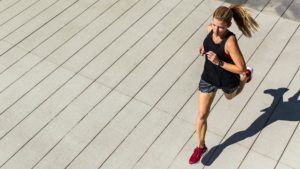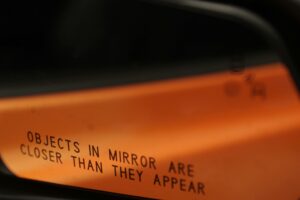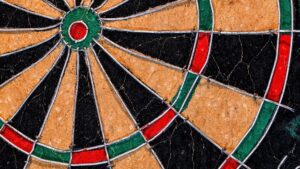Posts by Julie Christine Johnson
“What is a poem?” The Poet asks. I strain to hear her soft voice over the rain pelting the conservatory’s glass roof. “How do prose and poetry differ?”
“There is more room for the reader in a poem,” I offer. “Prose fills the silences. Poetry lets the reader sit still within them.”
The Poet reads Eavan Boland’s Quarantine aloud and I sob, flayed open at the image of a husband and wife dying of hunger during the Great Famine, the man holding his wife’s bare feet against his chest to warm and comfort her as she breathes her last.
The Poet’s mellifluous voice takes me inside W.S. Merwin’s Thanks and I see what it is to weave bitter irony and anger into banal expressions of gratitude.
The Poet asks us to write poems of our own. “The real things of the world are the entry point to the imagination,” she says. “Keep your writing grounded by writing from a real place.”
~
I have come to this writers’ retreat center in Southwest Ireland to spend two weeks working in concentrated solitude. I’ll review the galley of my debut novel, just a few months out from launch: it’s my last chance to make any (minor) changes. I will also hike the hills and explore the villages that are the setting of my second novel, very newly under contract. Thirteen years have passed since my last visit to the Beara Peninsula, a remote and wild tongue of land that juts into the frigid Atlantic. I want to make certain I depict its landscapes just right. I work steadily on my galley from early in the morning until lunchtime, hit the trails that crisscross the hills between the villages of Eyries and Allihies in the afternoons, and in the evenings I write. If there is heaven on earth, this is it for me.
Then, just as I’m closing out the first week, the earth shifts. In a stunning turn of serendipity, the Beara’s own celebrated poet, Leanne O’Sullivan, arrives to lead a weeklong poetry workshop. It was Leanne’s poetry collections An Cailleach Beara and The Mining Road that inspired the themes and plotlines of my “Irish” novel, The Crows of Beara. After a breathless (me) conversation with the residency coordinator, a place is made for me as eight other writers arrive.
~
I am not a poet. As a writer of prose, I know the value of rhythm and form, of the carefully chosen word, the breath taken, the meaning conferred in a phrase or in the spaces in-between. But to actually write my own poems? I am rattled. How do I begin? What is my way into a poem?
Each day I search for something vital and tangible to ground me in my words. Here I am in this land of legends, where inspiration seeps from slabs of stone sculpted by Bronze Age hands—now scratching posts for the russet and inky-black flanks of Angus and Friesian. Yet I arrive each morning without a poem. I am anxious. Mortified. I wonder what I’m doing here amidst true poets, who bring work to share, prepared to critique and be critiqued.
I hear Leanne saying, “Poetry is the place where […]
Read MoreLate in the spring, my partner registered us for an August pétanque doubles tournament. Invented in Provence shortly before WWI, pétanque is a scrappy French bowling game played on a gravel strip with hollow steel balls that are thrown to land in the closest proximity to the cochonnet, or jack—a little wooden ball. Players of all shapes, sizes, ages, abilities, genders, political affiliations, and ice cream flavor preferences will find themselves welcome on a pétanque terrain. You should totally check it out.
In fact, it’s too bad I don’t play. I think I’d really like it.
My sweetie discovered the sport in early 2020. A collegiate baseball champion, he took to it like a duck to a pond. Pétanque, which demands keen eye-hand coordination, is perfect for his skillset. Because the game is played outdoors with no physical contact between players, the local league became a social lifeline for a community in pandemic isolation. My guy went all in, building a court in our yard and practicing every chance he got. Within months, he was winning tournaments.
I’ll often sit in on Sunday club practice after I walk the dog through the adjacent state park. I turn out for every local competition. Yet when asked to join a game, I refuse. I played a few times in those early days, but I felt clumsy and inept. I quickly realized I would, amazingly enough, have to practice if I hoped not to embarrass myself on the court. Since I didn’t possess a natural acuity, why bother? I didn’t have the time or patience to practice weaving a complicated toss through a rocky terrain or to conduct drills for that awesomely satisfying carreaux sur place—when your boule hits an opponent’s with such precise force your boule replaces theirs.
I couldn’t make the leap to doing something simply for the joy, fun, and fellowship of it.
~
My approach to writing has felt a lot like my attitude toward playing pétanque. For decades I sat on the sidelines with my dreams, thinking one day I’d like to write creatively. As a kid, I filled spiral-bound notebooks with stories penned in sloppy cursive that was nearly engraved on the page because I could hardly write fast enough to keep up with my thoughts. But by college, I’d left creative writing behind. I was never going to be good enough to write for publication, so what was the point?
It wasn’t until my early forties, when I took a chance on a writing workshop in Seattle, started a blog, and began reviewing books on Goodreads, that I rediscovered my love for writing. The simple act of showing up to the page brought me joy, comfort, and inspiration, separate from any need or desire to achieve something from my stories or posts.
Then it happened. I submitted my first short story and it was selected for an anthology. The siren song of validation was irresistible. It’s not that I began writing for publication, but now my writing had an end goal. I wanted to see my work in the world.
Within three years, I’d completed my first novel, landed an agent, a book contract, and saw more short stories through to publication. I was on fire. Another novel, another contract. And then…
I […]
Read More“The moment my legs begin to move my thoughts begin to flow – as if I had given vent to the stream at the lower end and consequently new fountains flowed into it at the upper.” – Henry David Thoreau.[i]
Thanks to my parents’ foresight, little-girl me took swimming and tumbling lessons. I had a canary yellow bike with streamers dangling from the handlebars that carried me up and down the half-mile road leading from our house at the end of a cul-de-sac to the highway, whereupon I spun around and pedaled like the wind in the other direction (No helmet? What? Nah. This was 1977!).
But athletic I was not. I was an introverted, nose-in-a-book kid who made up mysterious ailments to get out of P.E., huddling miserably in the bleachers when it came time for a unit in basketball or soccer, knowing I’d be picked last for any team. Terrified of breaking my glasses, I would duck and cover my head if a ball—basket, base, volley—headed in my direction. Anything that demanded strength, coordination, and the ultimate horror—teamwork—would send me running for the hills. No pun intended.
Or rather, no pun at all. Reality was, if I wasn’t reading or writing in my room, I was outside and in motion. The pastures behind our house on the Olympic Peninsula of Western Washington state once fielded herds of dairy cows. An old barn, abandoned and caving in on itself, provided endless hours of make-believe, from Laura Ingalls-inspired frontier scenarios to Frances Hodgson Burnett-like secret gardens. The cow skulls and rib-cages hidden in overgrown fields of Timothy hay made for wild west and survival reenactments only fans of Grizzly Adams could appreciate. I rambled from open fields through forests of Doug fir and western red cedar until the sun dipped below the Olympic Mountains, coming inside only when the porch light clicked on, signaling it was time for dinner. I recall no feelings of loneliness—only a deep solitude that comes from having nothing more than my imagination for company.
Somehow that reserved, solitary kid who convinced herself she was hopeless at anything that involved Nikes and a gym bag became a reserved, solitary young woman who found her way first to a gym (because who wasn’t doing Step Aerobics in the nineties?) and then into a pair of running shoes, onto a bicycle (without streamers, sadly) and into a pool and finally swimming laps in Lake Washington. Into hiking boots that led her up mountains, into snowshoes that shushed through forests. Onto a yoga mat.
In fact, I became an athlete—regularly running half-marathons and competing in sprint triathlons—years before I became a writer. Prone to bouts of anxiety and depression, I turned to physical activity to keep my mind and my moods on an even keel. But it wasn’t until I began writing creatively in my early forties that I found full equilibrium. I needed both laps around a track and laps around a page to settle my mind and manage my world. It was then I discovered how physical exercise was critical to my creative expression.
Researchers have long agreed that there is a link between physical movement and enhanced cognitive and creative ability, even if they don’t fully understand […]
Read MoreOctober was gracious with unexpected warmth and blooming dahlias. November funneled golden shafts of sunlight through dayglo foliage that refused to drop. December, the woodstove snapped with cedar, brightening the endless dark, while the open screen door off the kitchen let in cool air that feathered our bare feet. Winter played peek-a-boo and we fretted about the lack of snow in the mountains but were secretly glad we didn’t have to scrape ice from the windshields.
Then came January’s deep freeze. Now, I’ve lived in eastern Washington and in Colorado’s High Country and on the flat plains of central Illinois. Real cold is when your nose hairs freeze and you can’t catch a breath for the pain of icy air in your lungs. What we experienced — a few nights when the temps sank into the teens, well below our average winter lows of upper 30°s— isn’t going to impress anyone. But it did unexpected damage. Several of our plants and evergreen shrubs, including hearty ceanothus and myrtle, shriveled, their drooping, brown foliage falling hopelessly to earth. With the warm autumn and mild winter, these plants never properly hardened off; perennials and trees began the new year with fragile buds building on their stems and branches. We’d mulched in autumn, of course, and a few inches of insulating snow had fallen before the cold snapped, but without the opportunity to acclimate, the plants’ soft tissue was ruined by the sudden and sustained plunge in temperatures.
In my work teaching writing workshops and as a freelance editor, I often caution writers about sharing work too early. I’m now calling it the Soft Tissue Principle.
In our excitement about a story that compels us to the page and propels us forward, we rush pages into a critique session or press them into the hands of a friend, a partner or even another writer we trust, our desire to have our work validated clouding our judgment. We haven’t given our stories time to acclimate. A nascent narrative is full of tender soft tissue that needs to develop connective strength. The writer herself often needs the objectivity that comes with time: time to construct solid drafts and time to step away between each, coming at the story with fresh eyes and a 360° perspective.
Now, you might toss your premise out there to see how it lands. I met up with a former county sheriff, bought him a beer, and laid out the premise of a novel I was in the early days of sketching together, just to see if what I had in mind was even plausible. He decreed it to be so, and put me in touch with a former Seattle-area homicide detective who gave me even deeper insights and possibilities. I then ran the premise by my agent and with her thumbs up, I was off to the races. But it would be another three years of writing and revising before I felt the story was ready to share a draft with her, my first reader.
How do you know when it’s time to seek feedback? As in anything to do with writing, there are no hard and fast rules, only trials and errors and a certain rhythm you will come to understand […]
Read MoreSoon after the publication of my debut novel, a friend posted on my Facebook page: “Julie, I could hear and see you in Lia. She reminded me so much of you! I loved her!” Lia is the novel’s protagonist, a historian who specializes in medieval Cathar history (the Cathars were a sect of Christians that ran afoul of the Catholic church for their gnostic beliefs and liberal practices).
At the beginning of the novel, Lia returns to southern France where she was raised, drifting, aimless, in deep mourning after the death of her husband in a cycling accident. She falls into a mystery surrounding a 13th century murder and while searching for answers in ancient history, she finds a way to move forward in the present.
First off, let me say that my friend’s comment was received with all the love and enthusiasm with which it was offered. I was gobsmacked, really, and deeply moved. I had spent so much time with and shed so many tears over Lia, my first full-length narrative character, and I loved her, too. I still do. I wonder what she’s up to, all these years later. There is a voice that speaks quietly from a tucked-away chamber in my heart, saying “You’re not finished with Lia. She still has more story to live.” … but that’s a story for another column.
The point is that when someone expresses joy and appreciation for a character you created, who feels like an extension of yourself, it’s an embrace from the Universe.
But then again. There’s another point here. The thought that readers are finding you in your characters is also kind of weird. Discomfiting. Lia isn’t me. She doesn’t look like me, she didn’t experience my childhood or marry the man I did. Or divorce him. I didn’t set out to put myself on the page, to imprint my personality, experiences, or beliefs on my characters. I fell hard for the Languedoc region of France, its peaks and gorges, Roman ruins and tucked-away villages, inky wine and rich, complicated history. I envisioned a story that would take a historical event, swirl it into the mystical beliefs of the Cathars, run it through a time machine, and fashion it into a layer cake of historical fantasy, contemporary mystery and a multi-timeline love story. I channeled my passion for the Languedoc region and for Paris—the novel’s two primary settings—into every nook and cranny of the book’s setting, my knowledge of oenology and viticulture into other characters’ livelihoods and conversations, and hoped like hell I could keep up with my own plot. I wrote to a vision, a longing, a dream. I never intended to write about myself.
Okay, so Lia is acutely claustrophobic, like her creator. As it happens, my phobia — er, Lia’s phobia — was the perfect plot device. Portals, both literal and existential, are an essential element of Catharism and when Lia discovers a portal that will lead her to the truth, she’s forced into a situation that sends her straight into the crushing grip of full-blown panic attacks. I poured my ‘5-hours into a transoceanic flight and I can’t get off this airplane I can’t breathe Godpleasehelp’ mania into the scenes where Lia is trapped, to […]
Read MoreTherese here. Please join us in welcoming WU’s newest contributor, Julie Christine Johnson, who was introduced to us by one of our favorite people, Kathryn Craft! From Julie’s bio:
Julie is the author of the historical fantasy In Another Life, which was awarded the 2016 Foreword Indies Gold Prize for Book of the Year (Fantasy), and the eco-lit ode to Ireland The Crows of Beara. Her short stories and essays have appeared in several journals and anthologies, and she offers writing workshops and developmental editing services to fiction writers and memoirists. Julie hold undergraduate degrees in French and Psychology and a Master’s in International Affairs. She recently completed a work of crime fiction and is laying the groundwork for another historical fantasy, which may or may not feature Mary of Magdalene and the poet Rilke. A hiker, yogini, and wine geek, Julie makes her home on the Olympic Peninsula of northwest Washington state with four cats, seven chickens, a Labradane, and a painter.
You can learn more about Julie on her website and by following her on Instagram, Goodreads, and Substack.
Welcome, Julie! We’re so glad to have you with us!
A few days before the Solstice, against my better instincts, I opened an Instagram advertisement for a Planner. I couldn’t resist. The ad promised Productivity. Wellness. With this Planner I would achieve not just my goals, but my dreams. 2024 would be my best year ever.
I am a list-maker by nature; I have a day job that is governed by reports, meetings, and deadlines and I live or die by my daily office planner and a stack of yellow legal pads to track my goings-on. Other than the shared office Google calendar, I don’t digitalize my planning. The act of recording a task or an appointment by hand makes a deeper connection with my brain: I feel it as much as I see it.
But this Planner promised next-level empowerment, and for a moment I lingered on the website, wondering if it could be true.
Suddenly, my IG feed was nothing but advertisements for Planners. Gorgeous things, some the size of an atlas, others made to nestle as neatly in the palm as the ubiquitous smartphone. Some leather, others cloth-bound and embossed, like a Penguin Classic, begging to be opened, their creamy pages caressed. Some were filled with motivational quotes or creativity invoking prompts. Others had a Dashboard that would keep me on track or a Workflow System to chart my progress and hold me accountable (How? I marveled. A Planner with a built-in guilt genie, tsk-tsking when I drank a second glass of wine on a weeknight or blew off a Saturday morning of writing to finish the latest Ruth Ware novel?).
What is it about these Planners that is so irresistible? Why did I find myself, overcome by Agenda-Envy, googling “Best Planners 2024”? Yes, there is the allure of fresh starts. The intoxication of untouched pages and untapped pens that goes all the way back to grade school with the perfume of newly sharpened pencils and the smooth glide of Pee-Chee covers unmarred by doodling.
As I plunged down the Planner rabbit hole, I realized my […]
Read More













